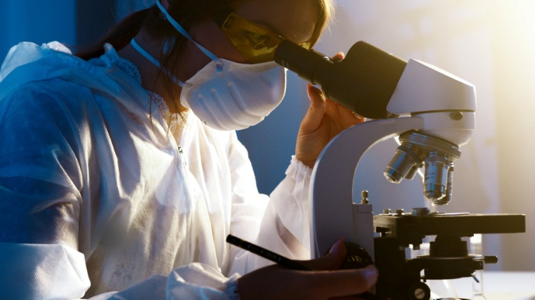A urinary tract infection is an infection of the bladder, kidney, and urethra. You may develop this condition because of the bacteria in your urine. Usually, urine does not contain germs and bacteria, but they can enter the body from an external source. Your urinary system filters the waste products and excessive water from the blood and stores by-products in the bladder. During this filtration process, your body does not include any contamination in the urine. However, bacteria can enter the body through the urethra during sexual intercourse. When the bacteria reach your urinary system, it causes inflammation and infection. You can refer to this condition as a urinary tract infection.
Are you suffering from urinary tract infection? Give us a call or visit the expert urologists at Fifth Avenue Urology.
What is the Urinary Tract?
Your urinary tract is responsible to produce and store urine. The urinary system consists of these four major parts:
· Kidneys
Your body contains two kidneys on each side above your hips. These are the small organs responsible to filter the blood. After the filtration it removes the excessive water and waste from the body through ureters.

(Source)
· Ureters
The ureters carry urine, which contains waste, from the kidneys to your bladder.
· Bladder
The bladder works as urine storage and it is a sac-like organ. Your body stores urine in this organ before extracting it from the body.
· Urethra
This is a tube that carries urine out of the body.
Causes of Urinary Tract Infections
You will develop a urinary tract infection because of bacteria. The bacteria enter your body through the urethra and increase in number once they enter the bladder. The urinary system prevents bacteria from entering the body but when its defense system fails, bacteria infect your urinary tract. Urinary tract infection is more common in women than in men.
1. Cystitis or Infection of the Bladder
You will develop this condition when bacteria cause infection in the gastrointestinal tract. Different type of bacteria can cause this disorder. However, Escherichia coli are common bacteria for cystitis development. The bacteria enter the body during sexual intercourse. You may also develop this infection after sexual intercourse. Due to the anatomy of the female reproductive system, women are at a risk of developing this condition. The chances for the development of the infection are higher when you have shorter space between the anus and the urethra.
2. Urethritis or Infection of the Urethra
You will develop this condition when GI bacteria enter the urethra. As females have less distance in between the vagina and the urethra, they have higher risk of developing this infection. Sexually transmitted diseases, including chlamydia, gonorrhea, herpes, and mycoplasma, may result in urethritis.
Symptoms of Urinary Tract Infections
Urinary tract infection infects the lining of the urinary tract. It causes irritation and inflammation. Here are some symptoms of this condition:
- Lower pelvis pressure
- Blood in the urine and painful urination
- Pain in the pelvic area or abdomen
- The need to urinate at night
- Smell and abnormal urine color
- Increased frequency to urinate
- Painful urination
Here are some other but rare symptoms of urinary tract infection:
- Lower back pain or flank pain
- Penis pain
- Pain while having sex
- Vomiting
- Mental confusion or changes
- Fever
- Fatigue
Treatment for Urinary Tract Infections
Your urologist will recommend treatment options based on the type of urinary tract infection. There are two types of infections. You may develop simple UTIs even you are healthy and have a normal urinary tract. On the other hand, complicated UTIs occur when you have an abnormal urinary tract. Simple UTIs are common in women, whereas, children and men develop complicated UTIs.
1. Simple UTI
You can treat simple UTI by taking antibiotic meds. Sometimes, a doctor will only prescribe a three days course for the treatment. The dosage also depends on the infection type. You will notice the difference after a few doses of the medication. However, you need to complete the round of medication. Keep in mind that UTIs may return if you did not completely treat the condition. During the infection, you need to consume plenty of water as this will eliminate the infection through urinary system.

(Source)
If you develop UTIs during postmenopausal the doctor will likely replace topical hormone with estrogen. Taking estrogen has side effects if you are also suffering from other medical issues. Therefore, you need to share medical problems with your urologist before treatment. They will decide the better treatment for your condition.
2. Complicated UTI
The doctor will prescribe a longer course of antibiotics for complicated UTIs. Sometimes, you need to stay in the hospital for complete therapy. The doctor may keep you on IV antibiotics for short time. After that, you need to consume antibiotics from the mouth for up to two weeks. You need to undergo the same treatment method for kidney infections.
Urinary Tract Infection: Conclusion
Do you live in NYC? Then you should contact Fifth Avenue Urology and make an appointment with our doctors. We have highly qualified urologists to diagnose and treat urinary tract infections. They will carefully examine your condition and suggest the best treatment plan. Other than UTIs, our Urologists can also treat other urinary disorders.

[…] Urinary tract infection (with high fever) […]
[…] urinary tract infection. A urologist conducts a urine test to diagnose the condition. A person with UTI might experience these symptoms as […]
[…] If children accidentally wet themselves during the daytime, this could also likely be a sign of a UTI. […]
[…] Tract Infections (UTIs): Infections in the urinary tract can cause temporary incontinence, especially in […]